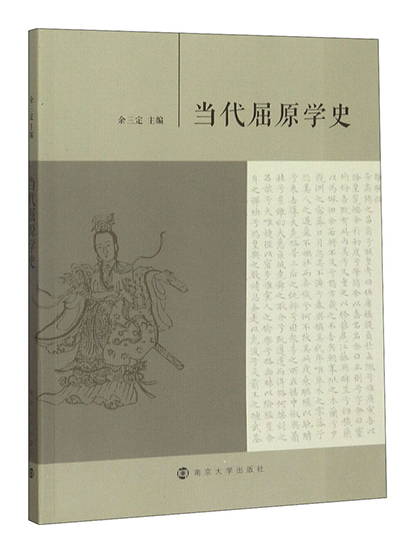Contemporary research of Qu Yuan growing

A History of Contemporary Qu Yuan Studies
Qu Yuan (c. 339–278 BCE) was a great patriotic poet in ancient China, who had a profound influence on traditional Chinese culture and traditional Chinese scholar-officials.
With a history of more than 2,000 years, research on Qu Yuan originated in the late era of the Warring States (475–221 BCE), and took shape in the Western Han Dynasty (202 BCE–8). In the mid-and-late 1980s, “Qu Yuan studies” was formally proposed. Current research results include both those based on traditional textual research and modern studies.
Edited by Yu Sanding, a professor from the School of Chinese Language and Literature at Hunan Institute of Science and Technology, A History of Contemporary Qu Yuan Studies systematically and comprehensively organizes the development trajectory of Qu Yuan studies since the founding of the PRC in 1949.
The book divides the history of contemporary Qu Yuan studies into four stages. The period from 1949 to 1966 was an early emerging stage, when most research was based on views of scholars from the 1930s and 1940s, such as Guo Moruo, You Guoen, and Lu Kanru. At the time, scholars focused primarily on the love of the nation and the people expressed by Qu Yuan and his Chu Ci (The Elegies of Chu), and investigated the historical and cultural origins of his patriotic spirit, further strengthening the idea of him as “the people’s patriotic poet.” Meanwhile, there was research into Qu Yuan’s life story, the authenticity of his works, and the spread of his poems overseas.
After more than ten years of stagnation, the field has ushered in a new vigorous stage. During the first 20 years after the reform and opening up, Qu Yuan studies began to revive. This was demonstrated by two national and international academic debates, which both followed the theme of his patriotic spirit.
During the 21st century, as information and network technologies advance, scholars have deepened and expanded research perspectives and research methods. This prosperous period has witnessed more international research perspectives, and a shift from “academicism” to studies on the inheritance and development of outstanding traditional Chinese culture, including national cultural heritage and intangible cultural heritage protection. The period has also seen a fast growing interest in interdisciplinary and regional research. In addition, Qu Yuan’s collections and works of related academic history have emerged, such as Abstracts of the Elegies of Chu, Bibliography of Chu Ci in the 20th Century, The Dictionary of Chu Ci Studies, and Qu Yuan Studies Over a Century.
Shen Ling is an associate professor from the Chinese Language and Culture College at Huaqiao University.
Edited by YANG LANLAN
